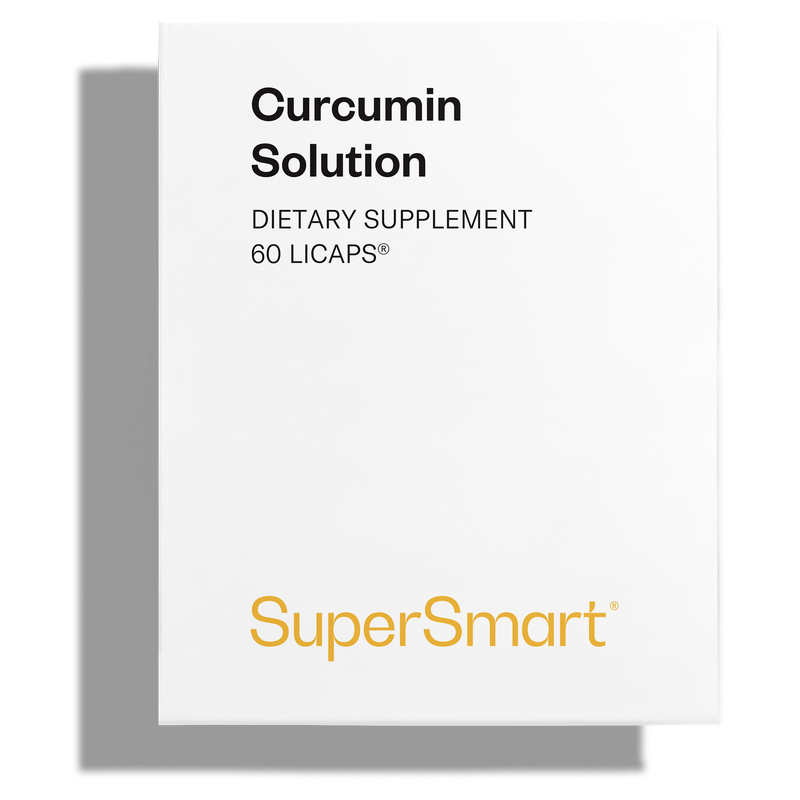Curcumin, the active compound in turmeric, boasts a vibrant yellow hue and a rich history rooted in ancient traditions. Extracted from the rhizome of the Curcuma longa plant, turmeric is celebrated not only as a culinary spice but also for its potent medicinal properties.
This golden spice has been revered for over 4,500 years, particularly within the Ayurvedic system of healing in India, where it was utilized for its anti-inflammatory and antioxidant benefits.
Across cultures, turmeric played a significant role in traditional medicine. In Ayurvedic practices, it was used to treat congestion, heal wounds, and improve skin health.
Its cultural significance extends beyond health, appearing in rituals and as a natural dye. From sacred Hindu ceremonies to Buddhist robes, the influence of turmeric and curcumin is as rich as its color, making it a timeless staple in both medicine and culture.
Contents
- 1 What is Inflammation?
- 2 The Chemistry of Curcumin
- 3 How Curcumin Fights Inflammation
- 4 Curcumin vs Traditional Anti-Inflammatory Drugs
- 5 Scientific Studies Supporting Curcumin’s Effects
- 6 Real-Life Applications
- 7 Incorporating Curcumin in Your Diet
- 8 Potential Side Effects
- 9 Interactions with Other Medications
- 10 Curcumin FAQ
- 11 Products
- 12 Sources
What is Inflammation?
Inflammation is like your body’s natural alarm system, responding to injury, illness, or harmful invaders such as germs. Think of it as a fire alarm going off when there’s smoke it signals that something is wrong and needs attention. This process is essential for healing and recovery, helping to mend damaged tissues and protect your body.
There are two main types of inflammation. Acute inflammation acts quickly, like a sprinter, showing up with redness and swelling but leaving swiftly. Chronic inflammation, however, is like a marathon runner, persisting for months or even years, which can lead to health issues if not managed. Without inflammation, our bodies wouldn’t heal properly, but too much can harm healthy tissues, underscoring the importance of balance.
The Chemistry of Curcumin
Curcumin, the star compound found in turmeric, boasts a unique chemical structure that gives it its powerful properties. Structurally, curcumin is made up of two aromatic ring systems connected by two unsaturated carbonyl groups, often depicted in a simple diagram showing its linear shape. This structure plays a crucial role in its ability to combat inflammation.
The magic lies in curcumin’s ability to interact with various molecules in the body. Its structure allows it to easily penetrate cell membranes, making it highly bioavailable. This means curcumin can effectively reach and impact the cellular level, where it can disrupt inflammatory pathways.
Moreover, the presence of hydroxyl and methoxy groups in curcumin’s structure enables it to act as a potent antioxidant. This helps in neutralizing free radicals, which are known to cause oxidative stress and inflammation. Thus, curcumin’s chemical design is well-suited to support its anti-inflammatory properties, making it a natural ally in managing inflammation.
How Curcumin Fights Inflammation
Curcumin, the active compound in turmeric, is renowned for its ability to combat inflammation at a molecular level. It achieves this by interacting with multiple cellular pathways. One of the key mechanisms involves curcumin’s ability to inhibit the activation of NF-kB, a protein complex that plays a crucial role in regulating the immune response to infection. By blocking NF-kB, curcumin can effectively reduce the production of inflammatory cytokines, which are molecules that promote inflammation.
Additionally, curcumin influences the cyclooxygenase (COX) enzymes, particularly COX-2, which are involved in the inflammatory process. By inhibiting these enzymes, curcumin can help decrease the levels of prostaglandins, compounds that contribute to inflammation and pain.
Through these pathways, curcumin not only reduces inflammation but also helps prevent the escalation of acute inflammation to chronic inflammation, which can lead to various health issues. Its multifaceted approach makes curcumin a powerful natural alternative to traditional anti-inflammatory treatments, offering a comprehensive method to managing inflammation effectively.
Curcumin vs Traditional Anti-Inflammatory Drugs
When exploring alternatives to traditional anti-inflammatory drugs, curcumin stands out for its potential benefits. A study comparing curcumin (BCM-95®) with diclofenac, a common NSAID, revealed that both were similarly effective in alleviating knee osteoarthritis pain. However, curcumin offered additional advantages like fewer adverse effects and benefits such as weight loss and anti-ulcer effects.
The table below highlights key comparisons:
| Aspect | Curcumin | Traditional NSAIDs |
| Efficacy | Similar to NSAIDs | Effective |
| Side Effects | 13% adverse effects | 38% adverse effects |
| Additional Benefits | Weight-lowering, anti-ulcer | None noted |
| Risks | Interaction with medications, bleeding risk | Gastrointestinal bleeding, ulcers |
Curcumin’s anti-inflammatory properties, coupled with its safety profile, make it an attractive option for individuals intolerant to NSAIDs. However, it’s essential to weigh its interactions with other medications and potential risks. For those seeking a natural alternative, curcumin represents a promising solution, albeit with considerations for its bioavailability and interactions.
Scientific Studies Supporting Curcumin’s Effects
Curcumin, a potent anti-inflammatory agent derived from turmeric, has been the subject of numerous studies highlighting its therapeutic potential. One pivotal clinical trial demonstrated that daily consumption of 80 mg of curcumin nano-micelle significantly reduced plasma levels of C-reactive protein (CRP) and TNF, both critical markers of inflammation. This finding underscores curcumin’s efficacy as a natural anti-inflammatory treatment.
In the realm of inflammatory bowel disease (IBD), curcumin has shown promise in alleviating symptoms of both ulcerative colitis and Crohn’s disease. It achieves this by inhibiting the NLRP3 inflammasome and reducing pro-inflammatory cytokines. Clinical outcomes have been favorable, with notable improvements in patient symptoms and quality of life.
Moreover, curcumin’s potential isn’t limited to IBD. Research indicates its effectiveness in managing conditions such as arthritis, psoriasis, and atherosclerosis. Despite these promising results, challenges in standardizing dosage and administration remain. Nonetheless, ongoing research continues to explore curcumin’s mechanisms, aiming to enhance its therapeutic efficacy and broaden its application in inflammatory diseases.
Real-Life Applications
Curcumin, the powerhouse compound in turmeric, finds its way into daily routines far beyond the spice rack. Many people incorporate it into their diet through delicious golden milk lattes, a soothing beverage known for its warmth and anti-inflammatory benefits. Others sprinkle turmeric into their morning smoothies or soups, embracing its potential to ease joint pain and inflammation.
For those seeking more targeted relief, curcumin supplements provide a concentrated dose. A friend of mine swears by these supplements for managing her arthritis symptoms, stating that they help her maintain an active lifestyle without relying solely on conventional medications. Whether through culinary creativity or supplements, the practical uses of curcumin are as diverse as they are beneficial.
Incorporating Curcumin in Your Diet
Adding curcumin to your diet can be both a flavorful and healthful choice, given its anti-inflammatory properties. Here are some popular ways to enjoy this golden spice:
- Golden Milk: Mix turmeric with milk, honey, and a pinch of black pepper for enhanced absorption, creating a soothing drink.
- Turmeric Tea: Brew turmeric with ginger and lemon for a refreshing and health-boosting beverage.
- Curries: Use turmeric as a staple spice in curries, enhancing both flavor and color.
- Smoothies: Add a teaspoon of turmeric to your morning smoothie for an antioxidant boost.
- Soups and Stews: Stir in turmeric to soups and stews for additional warmth and health benefits.
For those who prefer a more concentrated source, curcumin supplements are a convenient option. Many supplements suggest a daily dosage of 500 to 2000 mg, but it is always wise to consult with a healthcare provider to determine the appropriate amount for your needs.
Incorporating curcumin into your lifestyle is a simple step toward enjoying its potential anti-inflammatory benefits, whether through culinary experimentation or supplementation.
Potential Side Effects
While curcumin is celebrated for its health benefits, it’s important to be aware of potential side effects. Common issues include allergic reactions, gastrointestinal problems like nausea and diarrhea, and possible kidney concerns. Some individuals may experience worsened gallbladder issues or increased bleeding risk due to curcumin’s antiplatelet effects.
Warning: Certain groups should steer clear of curcumin supplements. Those with gallbladder problems, bleeding disorders, or diabetes should exercise caution. It’s also advisable for individuals with liver disease, iron deficiency, or hormone-sensitive conditions to avoid curcumin. Pregnant women, those undergoing surgery, and individuals with heart arrhythmia should particularly avoid curcumin due to potential health risks.
Before incorporating curcumin into your routine, consulting with a healthcare provider is wise, especially if you have existing health conditions or are on medication.
Interactions with Other Medications
Curcumin, the active compound in turmeric, can interact with certain medications, potentially leading to adverse effects. As a mild blood thinner, curcumin can amplify the effects of blood-thinning medications like Warfarin, Clopidogrel, and Aspirin, increasing the risk of bleeding. It may also lower blood sugar, which could lead to hypoglycemia when combined with diabetes medications. Furthermore, curcumin can boost stomach acid production, potentially interfering with antacids such as Tagamet and Prilosec. Given these interactions, it’s crucial to consult a healthcare provider before adding curcumin to your regimen, especially if you are taking these or other medications. This step ensures safety and prevents any harmful side effects.
Curcumin FAQ
Curious about curcumin? Here are some common questions answered:
What is curcumin? Curcumin is the active compound found in turmeric, known for its anti-inflammatory and antioxidant properties. It’s what gives turmeric its bright yellow color.
How does curcumin help with inflammation? Curcumin helps reduce inflammation by inhibiting key molecules involved in inflammation pathways, making it a natural alternative to traditional anti-inflammatory drugs.
Can I take curcumin with my medication?
Curcumin can interact with certain medications. It may enhance the effects of blood thinners like Warfarin, increase the risk of hypoglycemia with diabetes medications, and interfere with antacids. Always consult with a healthcare provider before combining curcumin with medications.
Are there any side effects of taking curcumin? While generally safe, high doses of curcumin may cause nausea, stomachache, or dizziness. Those with specific health conditions should avoid it.
Understanding curcumins benefits and interactions can help you make informed decisions about its use in your health regimen.
Products
| Amazon products |
| Ebay products |
 |
Sources
Here are authoritative medical sources on curcumin, each with a direct link and a brief summary:
-
Curcumin: A Review of Its’ Effects on Human Health This comprehensive review discusses curcumin’s potential benefits in managing oxidative and inflammatory conditions, metabolic syndrome, arthritis, anxiety, and hyperlipidemia. It also highlights curcumin’s role in exercise-induced inflammation and muscle soreness, emphasizing the importance of bioavailability for its efficacy.
-
Curcumin Supplementation and Human Disease: A Scoping Review of Clinical Trials This scoping review evaluates human clinical trials on oral curcumin supplementation, focusing on its effects across various diseases. The analysis suggests potential clinical benefits, particularly for metabolic syndrome and osteoarthritis, while noting the need for further large-scale, randomized controlled trials.
-
Curcumin: Biological, Pharmaceutical, Nutraceutical, and Analytical Aspects This article delves into the biological activities of curcumin, including its anticancer, anti-inflammatory, and anti-aging properties. It addresses challenges related to curcumin’s poor aqueous solubility and bioavailability, discussing various formulation techniques aimed at enhancing its therapeutic efficacy.
-
Curcumin: New Insights into an Ancient Ingredient against Cancer This review explores curcumin’s significant anti-inflammatory effects both in vitro and in vivo, discussing its modulation of various signaling pathways in cancer cells. It also examines ongoing clinical trials assessing curcumin’s role in cancer treatment and supportive care.
-
Turmeric and Curcumin—Health-Promoting Properties in Humans and Animals This study characterizes turmeric and its main component, curcumin, focusing on their anti-inflammatory, anticancer, and antioxidant effects. It also addresses the limitations associated with curcumin’s low bioavailability and poor water solubility.


